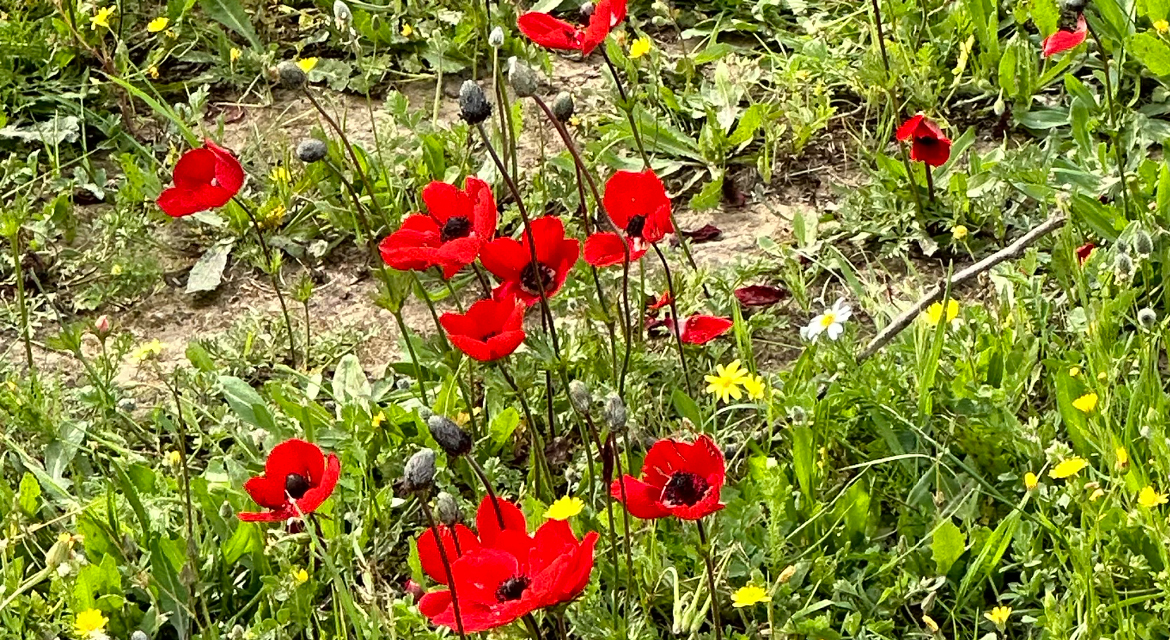October 6, 1946, is a date that doesn’t mean much to most people. But for the residents of Kibbutz Be’eri in southern Israel, it marks the establishment of their very close-knit, multigenerational community.
The kibbutz — with lush fields and spacious paths — was named for Berl Katznelson, one of the founders of modern Zionism and a strong proponent of coexistence between Arabs and Jews. Prior to October 7, most of Be’eri’s residents worked as farmers or helped run the kibbutz’s thriving printing press. Despite the periodic rocket fire from Gaza, its residents viewed life there as idyllic.
By now, we all know what happened. The morning after the community celebrated the kibbutz’s 77th year, it was infiltrated by Hamas terrorists who massacred, raped, and tortured indiscriminately. Homes were riddled with bullets and burned. At least 10% of the 1,200 residents were killed; approximately 30 were taken hostage by Hamas in Gaza.
I was in Israel this week to attend board meetings of the Jewish Agency for Israel, our largest partner, and went with a delegation to see the charred remains of Kibbutz Be’eri. Our visit was led by a resident who is also the grandson of one of the original kibbutz founders. He’d just started working at the Jewish Agency.
He shared how October 7 unfolded: As hundreds of rockets started to hit, residents began texting frantically on a community-wide WhatsApp channel. At first, they thought there were just a few terrorists who could be quickly neutralized, never conceiving that they were dealing with hundreds and that it would take nearly three days for the IDF to fully clear the kibbutz.
We entered the destroyed house belonging to the Bachar family. At home on October 7 — the father, Avida, a farmer; the mother, Dana, who was a teacher and helped raise many of the children on the kibbutz; 15-year-old Carmel, who loved surfing; and Hadar, their daughter, just 13 years old. When Hamas stormed the community, the family took refuge in their safe room, but Hamas shot through the door and threw grenades. Though Avida was seriously wounded, he and Hadar survived. Dana and Carmel were murdered.
As much as these stories have been reported, it’s hard to fully grasp what was endured until you walk the grounds, see the bullet holes, and breathe in the stench of smoke that’s still strong almost five months later.
In what feels at first like a complete paradox, one sees the landscape of Kibbutz Be’eri is dotted with magnificent wildflowers and shrubbery, their beauty undiminished. Nature reminds us of its own resilience.
Kibbutz Be’eri, along with other devastated communities like Kfar Aza and Nir Oz, has been recognized by the Israeli government as one of eight communities on the southern border requiring “intensive care.” Virtually every dimension of life in these communities has been upended.
For that reason, in addition to the many millions of dollars UJA’s already provided to support the residents of southern Israel, we recently allocated another $8 million specifically to support these eight hardest-hit communities. The grant is part of an innovative partnership established with the Business Alliance — a group of senior corporate leaders who are joining forces with philanthropy and government to help these communities chart a course forward.
Our Jewish Agency group also visited the site of the Nova music festival massacre, where there are now hundreds of makeshift memorials with pictures of the beautiful faces of the young people killed that day.
The flowers newly bloom here, too — stunning red anemones all around.

